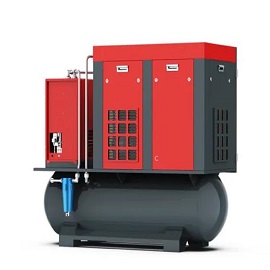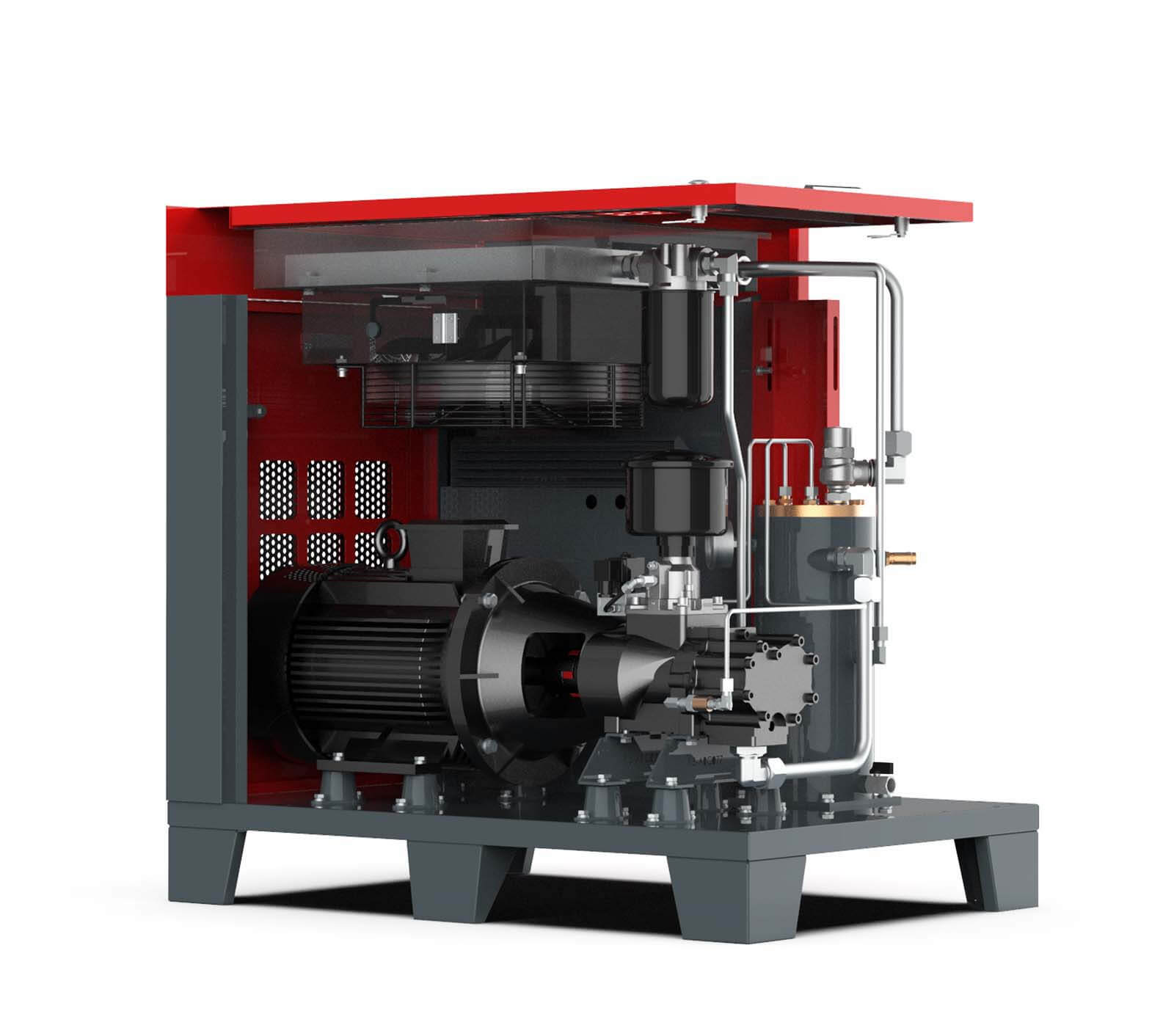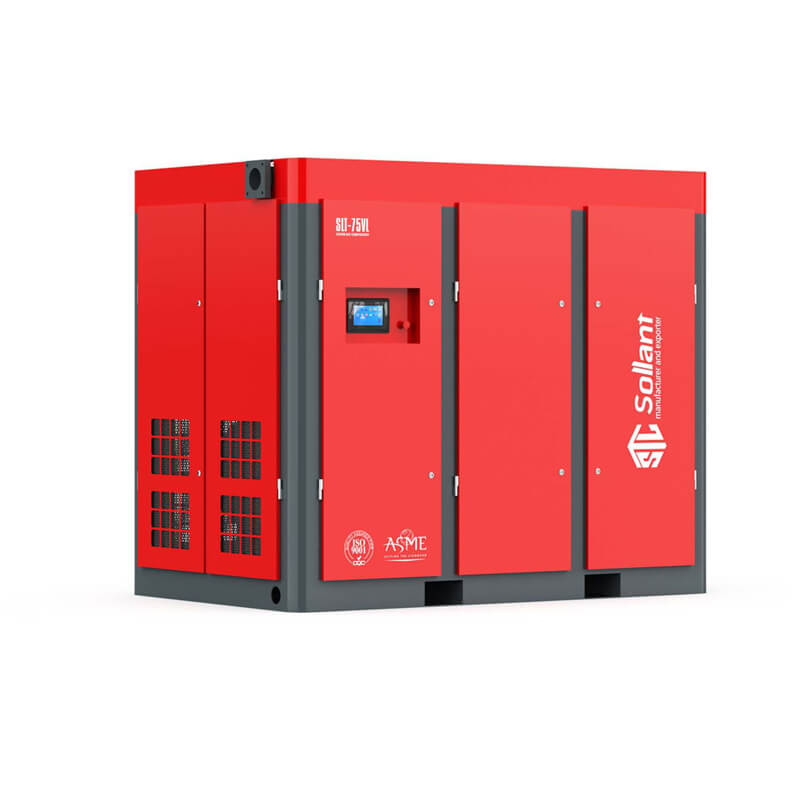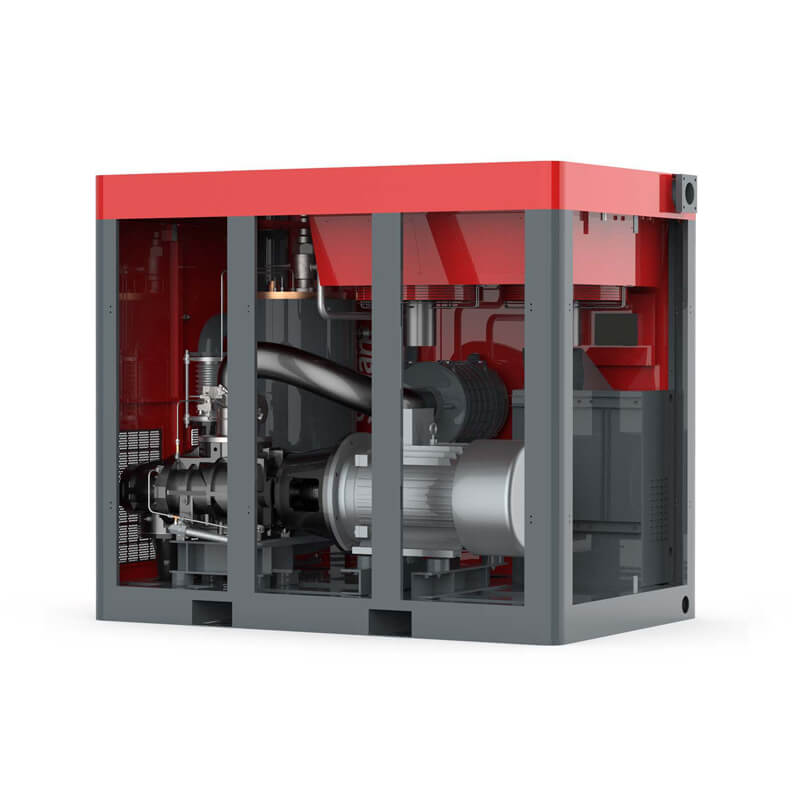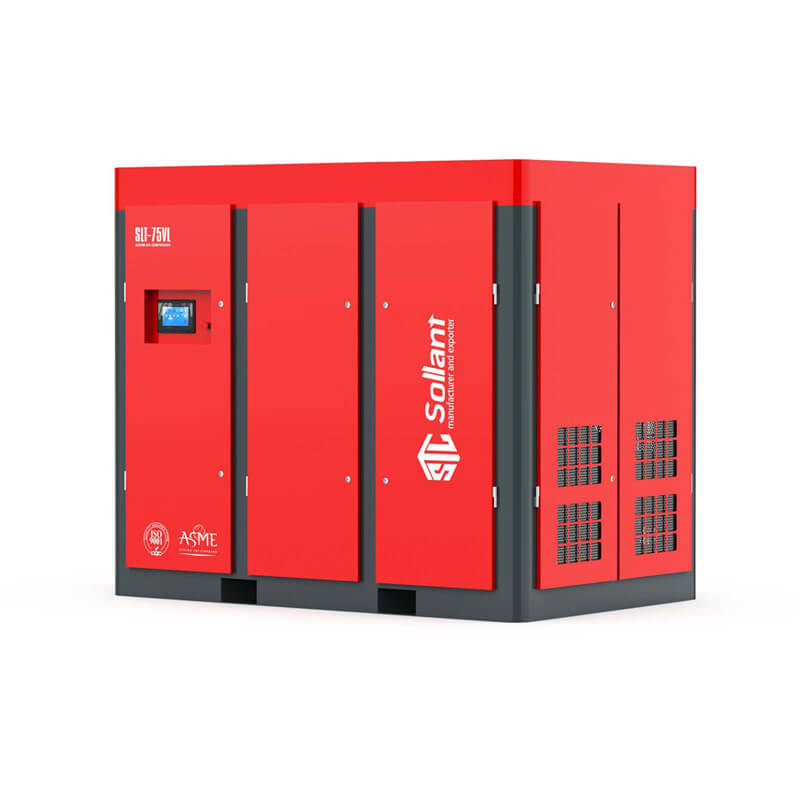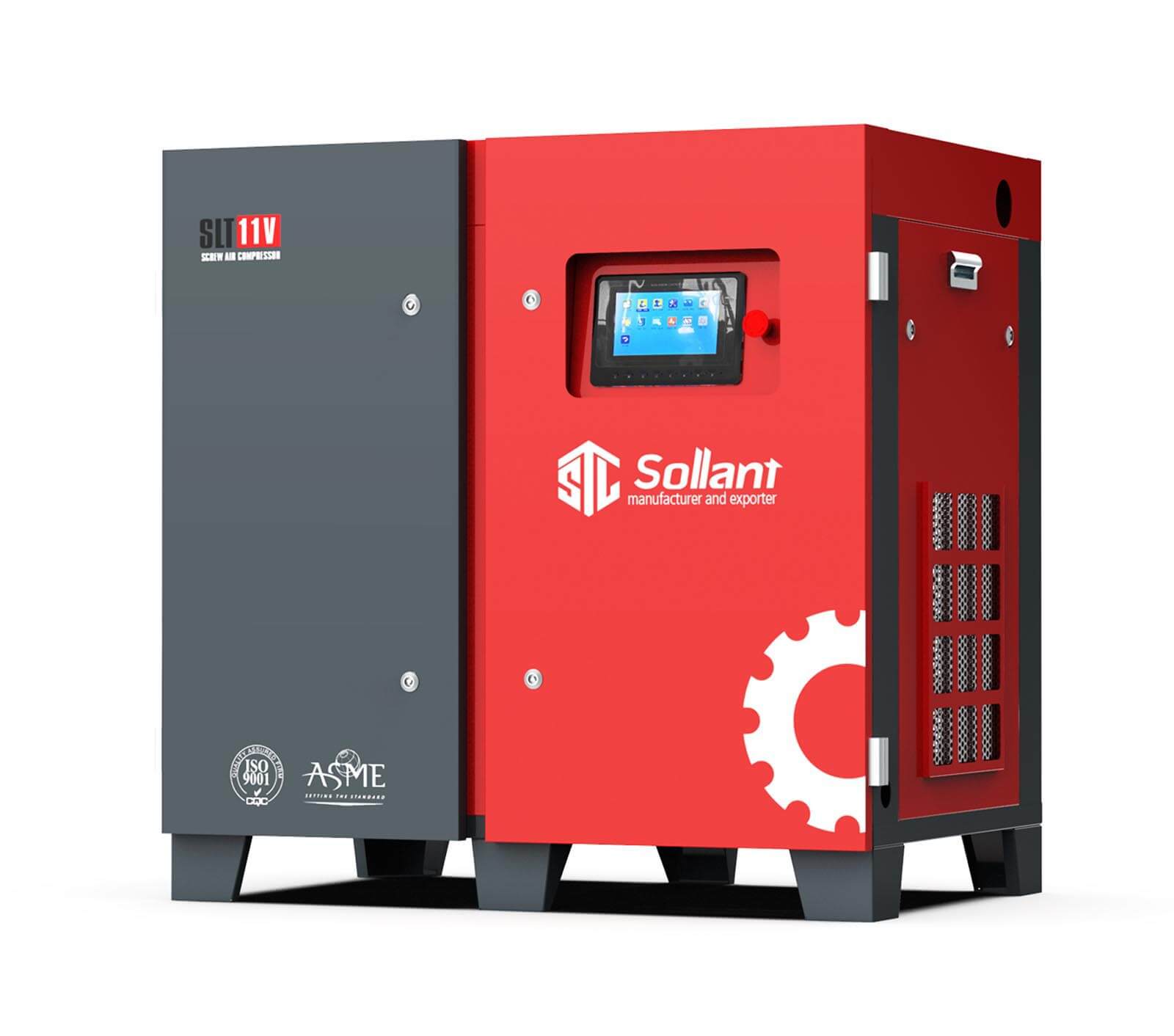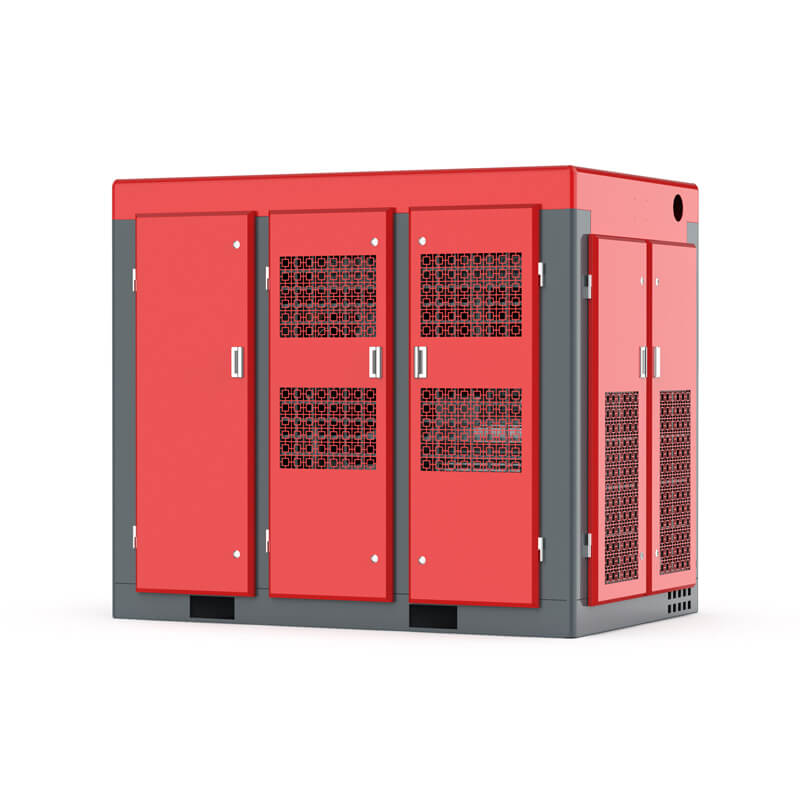What Are The Advantages And Disadvantages Of Centrifugal Compressors Over Reciprocating Compressors?
There are many differences to consider when choosing between a centrifugal air compressor and reciprocating compressors. You may want to look into aspects such as operating conditions, application requirements, and optimal uses.
Accordingly, there are many compressor options. However, the two most common variations are centrifugal and reciprocating compressors. When determining the compressor type that works for you, you may want to consider the following four components:
- Compressor cost
- Compressor flow rate
- Compressor efficiency
- Compressor multi-staging capability
This article focuses on the differences between centrifugal and reciprocating compressors.
What Is A Centrifugal Air Compressor?
A centrifugal air compressor is also known as a dynamic compressor with a radial design. Centrifugal compressor configuration works at constant pressure. This means that centrifugal air compressor performance depends on the inlet temperature and different external factors.
Centrifugal air compressors work by sucking air into the core. The air is then pushed to the center of the impeller by centrifugal force. The process results in a high-pressure build-up and kinetic energy. The kinetic energy is converted into pressure as the air passes through the diffuser and volute.
Centrifugal air compressors are used in almost every industry due to their reliability and efficiency.
What Is A Reciprocating Compressor?
A reciprocating air compressor uses pistons to compress air. The compressor unit also has a design that looks like an internal combustion engine. The pistons are central to the compressor function.
The pistons draw back to allow air into the intake valve and the compressor unit. After the air is injected into the compressor cylinders, reciprocating motions of the pistons compress it.
What Is The Difference Between Centrifugal And Reciprocating Compressors?
Operational and efficiency distinctions are essential in determining the differences between centrifugal and reciprocating compressors. Here are the central differences between these two compressor types.
Centrifugal air compressors have relatively better isothermal efficiency than reciprocating compressors. These compressor units are also more superior when it comes to isentropic efficiency. Additionally, centrifugal compressors are low maintenance than reciprocating compressors.
On the other hand, reciprocating compressors are more efficient than centrifugal compressors when the pressure ratio is above two. They are also more affordable.
Considering operational efficiency, these compressor types are different in terms of volume and pressure features. For instance, reciprocating compressors operate on pulsating air at a high-pressure ratio. This means that reciprocating compressors can handle as much air volume as centrifugal compressors.
Centrifugal air compressors are more efficient in low pressure and high discharge operations since they operate at a constant flow rate. The pressure ratio in a centrifugal air compressor is also lower than in reciprocating compressors.
Reciprocating air compressors operate on a multi-stage mechanism. While this can be beneficial in many applications, it also exposes the compressor unit to various problems. For instance, multi-stage systems require more maintenance. However, reciprocating compressors are more flexible when working in changing pressure conditions.
Reciprocating Compressor Advantages and Disadvantages
Advantages of reciprocating compressors
- Reciprocating compressors are used to generate high-pressure gas.
- They can compress gases of a wide molecular density range.
- They are highly efficient and flexible.
- Reciprocating compressors are more affordable and have rugged designs.
Disadvantages of reciprocating compressors
- Reciprocating compressors cannot self-regulate the capacity against output pressure.
- Reciprocating compressors are often bulky.
- Reciprocating compressors lose a lot of output due to friction between the pistons and the cylinder.
- Reciprocating compressors experience fluid flow pulsation.
- They are noisier due to high vibrations.
- The piston rings are always susceptible to dirt in the fluids.
Axial Compressor Advantages and Disadvantages
Advantages of axial flow compressors
- Axial flow compressors have high peak efficiency than other compressor types.
- They have a high mass flow rate.
- Axial flow compressors are highly efficient due to the high-pressure ratio.
- They reduce aerodynamic drag due to the small frontal area of flow.
Disadvantages of axial flow compressors
- Axial flow compressors are difficult to manufacture.
- They are also expensive.
- Installing axial flow compressors is more challenging since they are always heavy.
- Axial flow compressors require high power to compress air or start.
- Axial flow compressors experience a low-pressure rise per compression stage.
Screw Compressor vs. Centrifugal Compressor Efficiency
Rotary screw air compressors have an upper hand over centrifugal compressors when it comes to efficiency at part load and capacity control per output. This is because rotary screw compressors are positive displacement compressors that are less susceptible to capacity reduction when fouling happens.
Fouling reduces heat exchange in a compressor unit, lowering the evaporating temperature. This results in increased pressure requirement, which a screw compressor can handle well.
On the other hand, centrifugal air compressors are much better at low pressure, high discharge applications since they operate at a constant flow rate. They also have a lower pressure ratio.
Frequently Asked Questions
What is the difference between centrifugal and reciprocating compressors?
Centrifugal compressors use rotating blades attached to the impellers, while reciprocating compressors use pistons found in cylinders. Accordingly, reciprocating compressors are more efficient in terms of pressure ratio. On the other hand, centrifugal compressors are more efficient in terms of isothermal and isentropic efficiencies.
What are the advantages and disadvantages of axial flow compressor over centrifugal compressor?
Axial flow compressors can handle large volumes of airflow at a higher pressure ratio than centrifugal compressors. Additionally, axial flow compressors have a small frontal area per airflow and high ram efficiency than centrifugal compressors.
What is the application of a centrifugal compressor?
Centrifugal air compressors are used in a wide range of industries to perform different duties. Chemical plants, onshore and offshore oil and gas lifts, and food and beverage manufacturing plants require centrifugal air compressors to function optimally.
What is the principle of a centrifugal compressor?
Centrifugal air compressors apply Bernoulli’s principle in the working mechanism. The compressors impart kinetic energy into the airstream by increasing the speed of air. The kinetic energy is then converted into pressure in the diffuser and volute.
Conclusion
There are many compressor types you can choose to complete your projects. However, finding the right compressor for your applications and scope of work can be challenging. That is why you should understand the distinctions between various compressor types. This article focused on the differences between centrifugal compressors and reciprocating compressors.
The right compressor manufacturer can help you decide between centrifugal and reciprocating compressors owing to their knowledge and experience in manufacturing and supplying air compressors.

